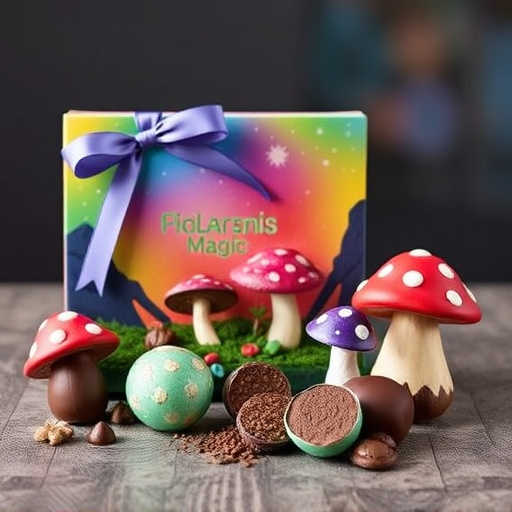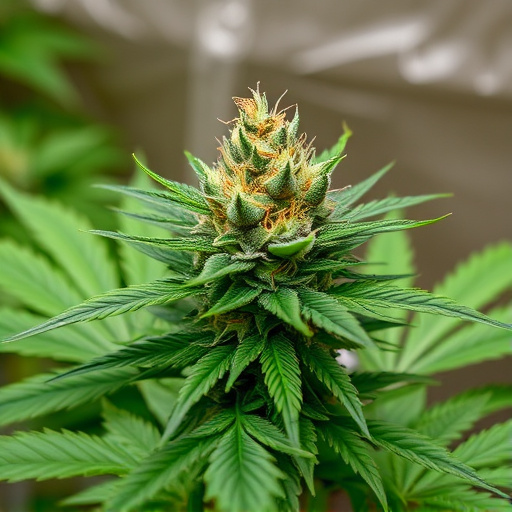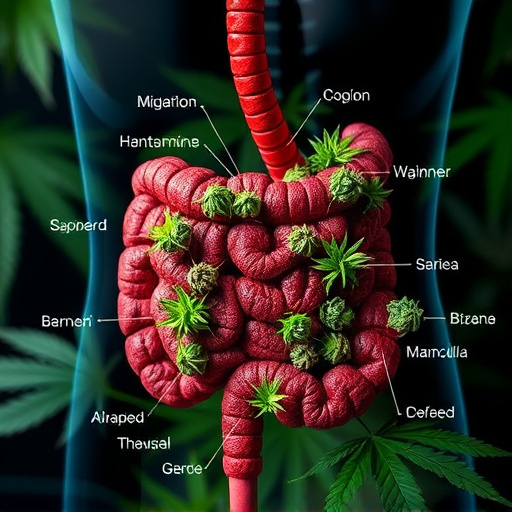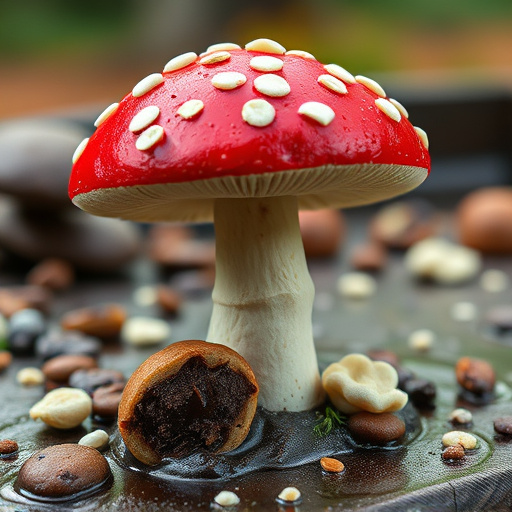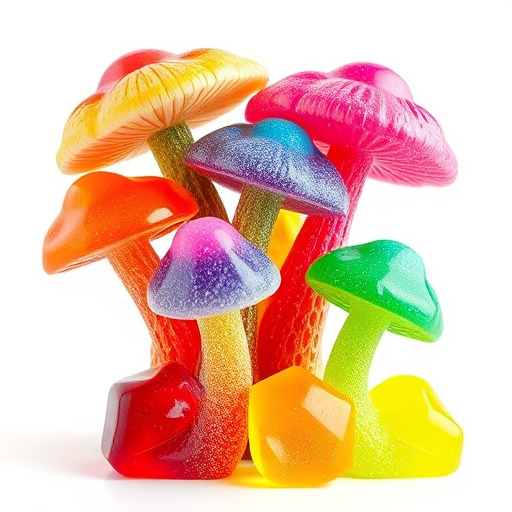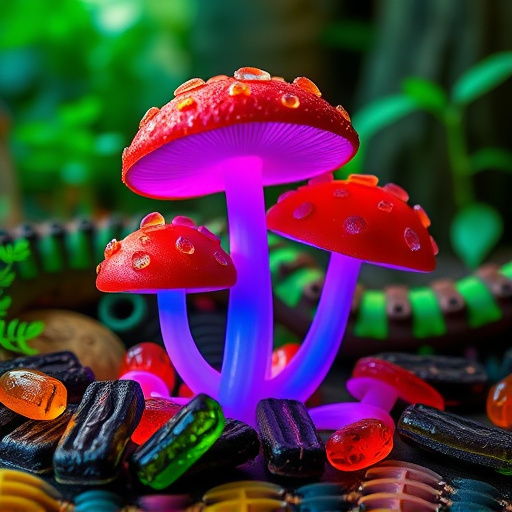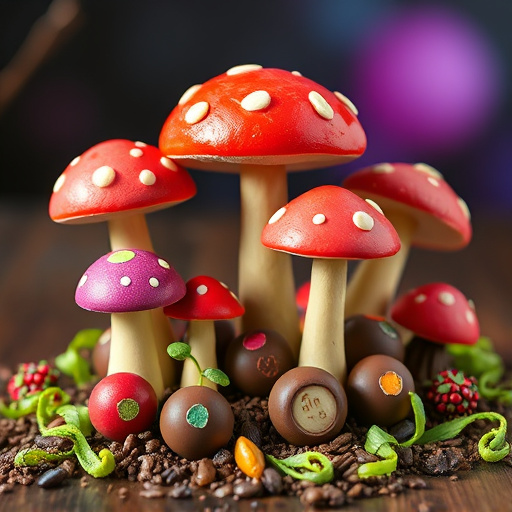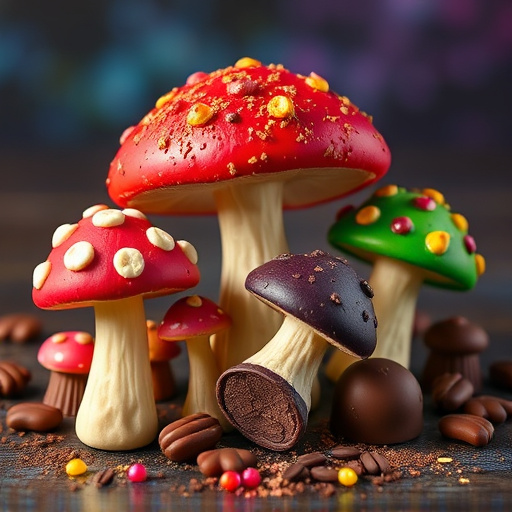The Legal Status of Magic Mushroom Chocolates is a globally diverse landscape, driven by regional laws and evolving scientific understanding of psilocybin mushrooms. While many countries classify psilocybin as illegal due to its psychoactive nature, therapeutic research has led some jurisdictions to decriminalize or legalize medical use. This creates a complex scenario where product availability depends heavily on local regulations, with varying restrictions and accessibility across different nations. The constantly shifting legal landscape poses challenges for consumers and businesses seeking to navigate international markets.
“Unveiling the World of Magic Mushroom Chocolates: Exploring the Legal Landscape and Customer Guarantees
The global landscape of magic mushroom chocolates is a complex web of legal considerations. With varying regulations across nations, understanding the current legal status is crucial for both consumers and brands. This article delves into the key factors determining legality, from psychoactive compounds to concentration and intent. We examine the significance of customer guarantees in ensuring safety and fostering trust, along with emerging trends and opportunities in this nascent industry. Navigate the market responsibly by exploring the legal intricacies and the role of brands in shaping consumer rights.”
- The Legal Landscape of Magic Mushroom Chocolates
- – Overview of current legal status worldwide
- – Variations in regulations across different countries
The Legal Landscape of Magic Mushroom Chocolates

The legal landscape surrounding magic mushroom chocolates is complex and varies significantly across different regions. In many countries, psilocybin mushrooms—the active ingredient in these chocolates—are classified as controlled substances due to their potential psychoactive effects. This classification often leads to strict regulations or outright bans on their production, sale, and possession.
However, a growing body of research into the therapeutic benefits of psilocybin has sparked interest in decriminalizing and legalizing its use for medical purposes. Some jurisdictions have already taken steps towards this, allowing limited distribution under controlled conditions. The Legal Status of Magic Mushroom Chocolates is thus influenced by local laws regarding substance regulation, with a shifting global trend toward more accepting stances.
– Overview of current legal status worldwide

The legal status of magic mushroom chocolates varies significantly worldwide, reflecting differing societal attitudes and regulatory frameworks around psychedelic substances. In many countries, including Canada, Australia, and several European nations, psilocybin-containing products like chocolate have been legalized for medicinal or therapeutic use under strict regulations. These jurisdictions often permit the sale and consumption of such products by qualified healthcare professionals in controlled settings.
In contrast, many other countries maintain stringent controls over psychedelic substances, classifying magic mushroom chocolates as illegal drugs. This includes the United States, where psilocybin remains a Schedule I controlled substance under federal law, despite growing advocacy for its therapeutic potential. As a result, the availability and legality of magic mushroom chocolates are contingent upon local laws, creating a complex landscape for consumers seeking these products.
– Variations in regulations across different countries

The legal status of magic mushroom chocolates varies drastically across different countries, reflecting diverse cultural attitudes and regulatory frameworks surrounding psychedelic substances. In some nations, these products are completely illegal, classified as controlled substances with strict penalties for possession or distribution. Other jurisdictions have taken a more permissive approach, allowing for the sale and consumption of magic mushroom chocolates under certain conditions, often with age restrictions and regulated sales environments.
This variability poses challenges for both consumers and businesses aiming to navigate the market responsibly. International travel becomes a complex affair, as what is legal in one country may be illegal in another. Moreover, it underscores the importance of thorough research and understanding local laws before engaging with magic mushroom chocolates, ensuring compliance with regulations that are constantly evolving.
The legal status of magic mushroom chocolates remains a complex and varied landscape globally. While some countries have embraced their potential for therapeutic use, others maintain strict prohibitions. Understanding these differences is crucial for both consumers seeking relief through psilocybin-infused products and businesses aiming to navigate this emerging market. Despite the challenges, a growing customer base and scientific interest suggest a promising future for magic mushroom chocolates. Companies offering these products must remain vigilant in adhering to local regulations and ensuring consumer safety through quality controls and transparent labeling, thereby fostering trust and legitimizing this innovative approach to wellness.
